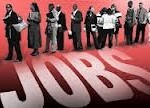
by Steven Waechter | Jul 1, 2013
 It is axiomatic in history that the new worlds of the revolutionaries tend to resemble the social systems of the past. Tsar Alexander II freed 60 million serfs with the stroke of a pen, and seventy years later Joseph Stalin would re-impose serfdom under the guise of collective farms. He used bullets instead of ink. Similar stories can be told of the French Revolution, the Chinese Civil War, Oliver Cromwell, and probably all revolutions in some respect.
It is axiomatic in history that the new worlds of the revolutionaries tend to resemble the social systems of the past. Tsar Alexander II freed 60 million serfs with the stroke of a pen, and seventy years later Joseph Stalin would re-impose serfdom under the guise of collective farms. He used bullets instead of ink. Similar stories can be told of the French Revolution, the Chinese Civil War, Oliver Cromwell, and probably all revolutions in some respect.
Alexander Hamilton wanted America to copy the British system, complete with political elites, state-supported monopoly corporations like the British East India Company, and all-powerful central government. It took two hundred years to overcome Jeffersonian resistance, but Hamilton finally won when TARP was implemented.
Perhaps it is no surprise that Barack Obama’s career-building commitment to the rhetoric of egalitarianism would lead to a stratified-by-force society resembling the old feudal model.
Get Fewer Hours, for Less Pay, and No Benefits
A friend of mine is facing the situation that has been making headlines lately; employers are cutting hours and eliminating their existing health care programs. Her employer (a farm-and-country retail chain) currently provides their employees with monthly cash payments earmarked for employee healthcare needs.
The company has been considering eliminating the cash payment, because paying the Obamacare penalty will be cheaper. Now, let’s examine this with the incredulous and caustic clarity that is my trademark – the company will stop giving money to employees for their healthcare needs, and give it to the government instead.
The employees lose their health program and are now individually liable for the Obamacare penalty if they fail to obtain health insurance on their own – fewer resources and greater obligations, a pincer strike on their standard of living.
FTE’s
Obamacare minstrels have been pointing out that the law goes into effect for companies with over 50 full-time equivalents – or “FTE’s,†so a company with 10 full-time employees and 100 part-time employees would have 60 FTE’s and would have to provide insurance but only for employees that work over 30 hours a week – in this case, 10 employees.
Fewer benefits, fewer hours, less income, and more obligations; employees lose at every bloody turn. To make up the difference, employees will scrounge for second and third jobs, as well as government support.
It used to be that you found a job and worked hard, so you would not have to rely on public support. Now, you will be dependent on the government whether you have a job or not.
We’re All Day Laborers Now
Corporate America is in a process of firing all of their employees and replacing them with temps. Much like some serfs were Villeins and some were Cottagers (the difference was that some retained land and others were landless laborers providing service to the lords for subsistence), there are several types of temp employee.
Some are just like standard employees, except that they have to reapply for their job every 3 to 6 months, while others are full-fledged employees of a temp agency, and are sent out on contracts to whatever employer has engaged them.
Check the job boards for your home town; temp agency jobs might be the bulk of what is available.
Revolutionary Destruction
Causing strain on social and economic relationships has been a tactic of ideological struggle between countries, factions, movements, religions, and all radicals since the beginning of time.
Causing stress within families can justify enormous social work bureaucracies; causing stress within the workplace can break down the economy and make employers and employees view each other as enemies and potential litigants; and so on with teachers and students, citizens and police, and any thing else you can think of to insert more arbitrators, sensitivity counselors, HR consultants, labor activists, and social workers into the workings of the nation.
I haven’t even included the doctors opting for early retirement. So, what will the part-time employee with no health coverage whose tax refund was eaten up by the Obamacare penalty and has no spare cash because scheduled hours were reduced do for healthcare? There will be Medicaid, and emergency rooms – but hospitals will be understaffed.
Perhaps you should become good friends with your local veterinarian; it helped on “The Walking Dead,†and it might come in handy as we slide into post-industrial feudalism.

by Steven Waechter | May 3, 2013
 Having nothing better to do, I decided to spend Monday morning on the DMACC campus for a spring career fair. I wanted to wander around and ask questions to people to try and gauge their perception of the job market, but I had no intention of simply administering a poll. No, I was going to make people defend their statements by asking why they held that belief, like Socrates but without the profoundness.
Having nothing better to do, I decided to spend Monday morning on the DMACC campus for a spring career fair. I wanted to wander around and ask questions to people to try and gauge their perception of the job market, but I had no intention of simply administering a poll. No, I was going to make people defend their statements by asking why they held that belief, like Socrates but without the profoundness.
I asked jobseekers if they were feeling optimistic or pessimistic. I asked recruiters about what kind of people they are looking for, both in terms of skills and personality.
Optimistic, They Think
Personally, I believe that optimism is stupid and should be hated, but I appear to be alone in this sentiment. Not one person admitted feeling pessimistic when asked directly, but when asked why they felt optimistic the responses were not very convincing. Most of them professed to be “upbeat†people, none of them based their professed optimism on confidence in finding employment.
One guy challenged me to explain how a person could get out of bed without being optimistic; I explained that getting out of bed has more to do with an urgent need for urination than a sunny disposition.
With only minimal coaxing I got a number of people to divulge some worries they held about finding work that paid sufficient wages to get on with their lives. This was the sentiment from some cosmetologists and a video store clerk who found my line of questioning strange but entertaining.
One young lady had experience in call center collections. I always wondered what people with lip rings ended up doing for a living, and now I know.
One quite profound comment I received was from a jobseeker who was leaving when I spoke to him. He was feeling pretty good about the day, and explained that it was because he actually got to speak with real-life people about getting a job, which is a novelty in a world where everything is now done online.
What the Recruiters Had to Say
Not just wanting to badger the jobseekers, as lunch approached and the crowd thinned out I began focusing on the recruiters – I was willing to be obnoxious but did not want to be disruptive, so waiting until the recruiters had nothing to do seemed like the polite way to go about things.
I asked the recruiters about what kind of people they are looking for, both in terms of job skills and personality.
In terms of available jobs, IT professionals, nursing at all levels, and financial advisors appear to be in growing demand in Iowa; I would speculate that this is due to the aging population needing health care and financial services in greater numbers.
Sales positions were a bit harder to come by, warehousing and light manufacturing appear to be evening out, and accounting positions are open but require some specific knowledge of one area of accounting, which could make job hunting difficult for some of the accounting professionals.
Type-A personalities
I spoke at some length with a recruiter about what sort of personality her company seeks. Her comments boiled down to “a networking, outgoing, team player with a Type A personality.†It sounded to me that everyone needs to be a sales rep even if they aren’t a sales rep. She agreed with that sentiment.
Sorting personalities is largely bull wash, but there are clear differences between people who prefer boisterous activity to pensive reflection. I vaguely remember going to some sort of leadership conference in college where we were sorted into Blue, Orange, Gold and Green personalities. I don’t remember the test, but I do remember being in the smallest group.
I ran the Introvert-Extrovert angle by some other recruiters. They all agreed with the first recruiter, which I found annoying because I am the more pensive, less diplomatic, scowling type who prefers libraries to call centers – “an atmosphere as restful as an undiscovered tomb,†as Professor Henry Higgins put it.
The National Career Readiness Certificate Strikes Again
Iowa Workforce Development was there to push the NCRC, which I didn’t expect although it didn’t surprise me. The NCRC is being rolled out through the Skilled Iowa Initiative under the supervision of the Lieutenant Governor.
The effort is two-pronged, in that they must convince people to take the test, as well as convince employers to value the results in their hiring efforts – not to mention informing employers that the NCRC is a thing that exists, because most of them still don’t.
Final Thoughts
Perhaps the whole thing was absolutely pointless. Maybe all I did was waste time, irritate many, and perhaps amuse a few people who aren’t used to being accosted by a random guy asking inane questions, but I encourage all of you to try it sometime because it is sort of fun.
The people I spoke with seemed intelligent, capable people who were eager to work. The recruiters seemed happy to speak to me as well as to jobseekers. Whether it will translate into actual people obtaining actual jobs, I may never know.
Nobody seemed terribly confident. People professed to be optimistic but didn’t know why, recruiters thought people should be optimistic but couldn’t explain why, and the various workforce organizations thought that they had the answers – new tests, new skills, and new strategies – but couldn’t explain why these medicines would work in the actual economy.
I left more convinced than ever of one thing; the American economy doesn’t work for a large number of people. In such an economy, the only real opportunities are the ones you make yourself. There was a time when most Americans had independent livelihoods, and I think it is time to re-examine self-employment.
Despite what you hear from politicians, the government hates self-sufficient people – they are too difficult to tax. It is much easier to tax a Bud Fox (Wall Street) than a Charles Ingalls (Little House on the Prairie,) which explains so much about our nation if you stop and about it.
We need as many people as possible to be as independent as possible from the mainstream economy; not just independent from government support, but people who don’t need to work for others to earn a living. In such a world, the career fair becomes absurd as a concept, not just made absurd by a little Socratic questioning.

by | Aug 16, 2012
 The following is an interesting study released recently, and the reaction by the GOP (written up by Jill J.).
The following is an interesting study released recently, and the reaction by the GOP (written up by Jill J.).
In a policy study released by the Public Interest Institute at Iowa Wesleyan College, author Amy Frantz analyzed Iowa’s teen unemployment situation. The report notes Iowa’s unemployment rate for teens has remained consistently high over recent history. Two subgroups are analyzed within the data: teens ages 16-19 and high school graduates 18-20 years old.
The report notes that the unemployment rate for the 16-19 year old group was at a very high 12.3 % in 2002 and over the course of the last decade has remained at the high level, with the most recent report for 2011 showing that the unemployment rate for 16-19 year olds was 13.8%. This is much higher than the overall unemployment rate in Iowa which was just below 6% in 2011. Similarly, the 18-20 year old high school graduate group’s unemployment rate was 9.6% in 2002 and has risen higher, peaking in 2010 with a rate of 19.3% before coming down below 18% in 2011.
Not only are the unemployment rates higher, but an analysis of the number of hours worked for these two groups has seen a reduction in the last decade as well. The average number of hours worked per week for the 16-19 year olds in 2002 was 12.5 hours, but has dropped to 8.1 hours per week in 2011. Again, the 18-20 year old high school graduates faced a similar situation wherein their average hours worked in 2002 was 21.1 per week, falling to 16.7 hours per week in 2011.
The study references the rise in minimum wage as one of the driving forces behind the tremendously high teen unemployment rate. Iowa’s minimum wage was raised by the Iowa Legislature and Governor Culver in 2007 from $5.15 per hour to $6.20 per hour, and then in 2008 it was raised to $7.25. The federal minimum wage was also raised by the Democratically-controlled Congress, up to its current level of $7.25 an hour, matching Iowa’s rate. The study links this rise of the minimum wage to the increase in teen unemployment rate, noting that “teenagers are five times more likely to earn the minimum wage than adults. Thus the impact of an increase in the minimum wage would be felt dramatically by that segment of the workforce.†Those most hurt by a rise in minimum wage are often the youngest and most unskilled workers as businesses cannot afford to pay increased wages for individuals that might not have the necessary training or productivity to bring to the business.
Lastly, the study proposes an idea on how to lower the teen unemployment rate in Iowa. The study proposes to create a “sub-minimum†wage for teen workers in the state, which would allow businesses to pay certain teens an amount below the minimum wage that would apply to all other workers. The study concludes with the observation that “The benefit of having a higher minimum wage is cancelled out if teen workers are receiving fewer hours of work. And for those teens that want a job but cannot find one, their wages are $0.â€
![Saving Jobs By Saving LIFO Accounting]()
by Will Rogers | Jul 27, 2011
 In his recent visit to our state, President Obama toured Alcoa, one of the world’s largest manufacturers of aluminum, located in Davenport, IA. As a part of his visit, President Obama praised the manufacturing sector of the economy and touted the strong growth of private sector jobs over the last 15-months of his administration. President Obama also mentioned in his speech that not only had Alcoa rehired laid-off workers, but that it was anticipating the need to add new employees to its workforce.
In his recent visit to our state, President Obama toured Alcoa, one of the world’s largest manufacturers of aluminum, located in Davenport, IA. As a part of his visit, President Obama praised the manufacturing sector of the economy and touted the strong growth of private sector jobs over the last 15-months of his administration. President Obama also mentioned in his speech that not only had Alcoa rehired laid-off workers, but that it was anticipating the need to add new employees to its workforce.
I am delighted that the President recognizes the positive impact private sector manufacturers are having on the economy, but what he failed to mention as a part of his visit was that he is advocating for repeal of the Last-In, First-Out accounting method, which would devastate businesses in our country, cost workers their jobs, and hurt our recovering economy.
The Last-In, First-Out accounting method, better know as LIFO, is a textbook accounting method that has been used by businesses for over 70 years. LIFO allows businesses to manage inventories in a way that helps protect assets from the costs associated with inflation. As a part of this method, businesses may incur a tax liability that has been held over from one year to the next, which is called a LIFO reserve.
President Obama proposes that the LIFO reserve should be eliminated and that businesses should pay a retroactive tax on this liability. Estimates put the amount the federal government would stand to collect from repealing LIFO at between $50-100 billion dollars.
President Obama says that he is only trying to end a tax break for oil companies and billionaires, so he can reduce deficit spending. And, while I applaud his, and other, noble efforts to reduce deficit spending and lower our national debt, repealing LIFO is precisely the wrong way to go about it.
The President and so many others who are advocating for the repeal of LIFO don’t seem to understand that this one time shot of revenue would have a chilling effect on the recovering U.S. economy and devastate businesses that use LIFO, many of which are manufacturers and wholesalers.
President Obama is correct that many of the largest U.S. oil and energy companies use LIFO. But so do many of our largest manufacturers and wholesalers, such as Archer Daniels Midland, Caterpillar, U.S. Steel, Nucor, Wal-Mart, and Dupont. Alcoa, the same company that President Obama praised during his visit to Iowa, has the 10th largest LIFO reserve in the country.
And many Iowa businesses would be hurt by LIFO repeal. John Deere, Meredith Publishing, Sukup Manufacturing, and Winnebago Industries, all use LIFO. So do farm equipment dealers, automobile dealers, grocery stores, and many other main street businesses.
A repeal of LIFO would have a huge impact on jobs as well. Employers would have to scramble to pay retroactive taxes and would be forced to lay off workers, cut health care benefits, stop contributions to 401(k) plans, and cancel planned hiring.
President Obama should take LIFO repeal off the table as part of his deficit reduction talks with Congress. And, if he won’t, Congress should refuse to pursue LIFO repeal as a part of the negotiations process for the sake of our country.
Reprinted from The Retailer, an Iowa Nebraska Equipment Dealers Association Publication, by permission.



![Saving Jobs By Saving LIFO Accounting]()
by DJ Durant | Jan 5, 2011
 Out with the old, in with the new, goes the standard cliche every year about this time. No, this is not a reference to Nancy Pelosi’s age, although incoming House Speaker John Boehner is 9 years younger. Speaker Boehner does represent a new attitude and the resulting optimism is being reflected in the markets and the broader economy.
Out with the old, in with the new, goes the standard cliche every year about this time. No, this is not a reference to Nancy Pelosi’s age, although incoming House Speaker John Boehner is 9 years younger. Speaker Boehner does represent a new attitude and the resulting optimism is being reflected in the markets and the broader economy.
Consider:
- Retail sales, Christmas sales, were up significantly over 2009
- Consumer and business confidence for November and December have inched higher
- Jobless numbers are moving downward, evidenced by today’s ADP employment report that suggested 297,000 new private sector jobs were created in December (this is a big number!)
This is not a coincidence. This is, however a direct result of increased optimism in the country due to the November election and subsequent Republican control of the House. It is a direct result of Congress extending the Bush tax cuts in November. It is a direct result of the repudiation of the Obama/Reid/Pelosi economic agenda. Republicans have a huge opportunity to make the economy and employment the primary issue in 2011. In the words of that great philosopher James Carville, “It’s the economy, stupid”.
In addition to repealing the two collosal and horrid pieces of legislation, (ObamaCare and Financial Institutions Reform), Congress needs to deal with several other hangovers from the Pelosi/Reid years. First, Julian Assange should be tried and convicted of being the cyber-terrorist that he is, and he needs to be treated like any other terrorist. Second, the federal government needs to be starved into submission. Follow the model Chris Christie has set in New Jersey. Get the unions under control (and with it, the unfunded pension liabilities). Finally, any free trade agreements with valued allies and trading partners, such as Colombia and South Korea, should be ratified and signed as soon as possible.
Movement in these directions will reinforce the current optimism prevailing in the country, promote private sector job growth, encourage banks to lend again, and as a result, generate revenues for not only the federal treasury, but state and local governments as well. The last two years nearly ruined us as a nation. We have an opportunity to correct the damage. 2011 is a new year. Let’s hope the new Congress can build on it.




 It is axiomatic in history that the new worlds of the revolutionaries tend to resemble the social systems of the past. Tsar Alexander II freed 60 million serfs with the stroke of a pen, and seventy years later Joseph Stalin would re-impose serfdom under the guise of collective farms. He used bullets instead of ink. Similar stories can be told of the French Revolution, the Chinese Civil War, Oliver Cromwell, and probably all revolutions in some respect.
It is axiomatic in history that the new worlds of the revolutionaries tend to resemble the social systems of the past. Tsar Alexander II freed 60 million serfs with the stroke of a pen, and seventy years later Joseph Stalin would re-impose serfdom under the guise of collective farms. He used bullets instead of ink. Similar stories can be told of the French Revolution, the Chinese Civil War, Oliver Cromwell, and probably all revolutions in some respect.




